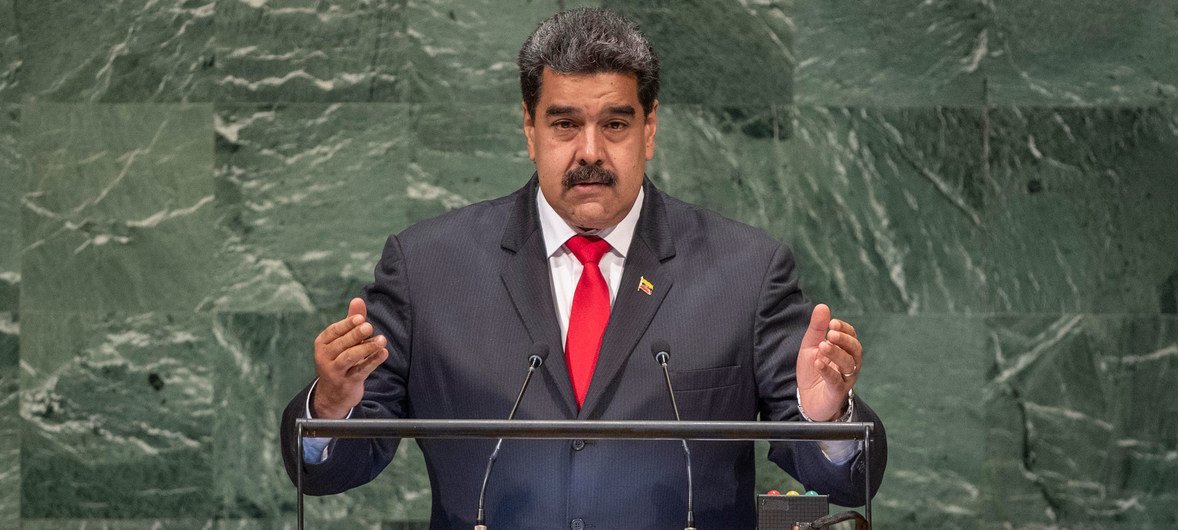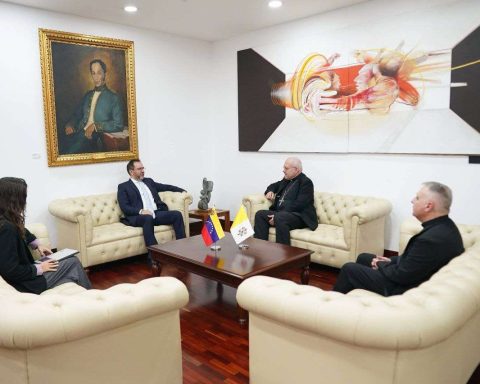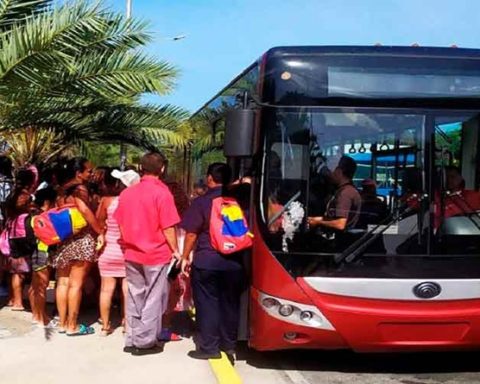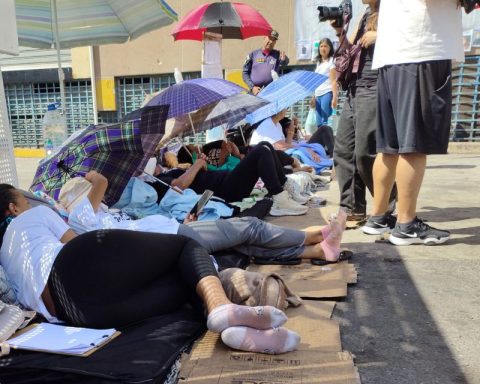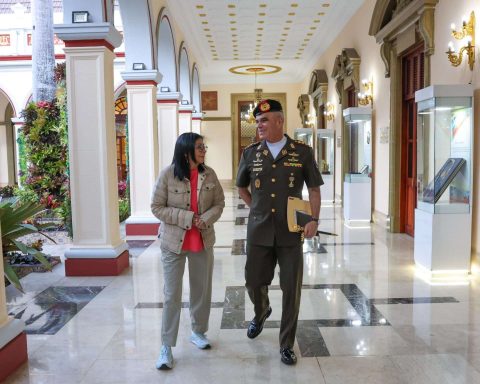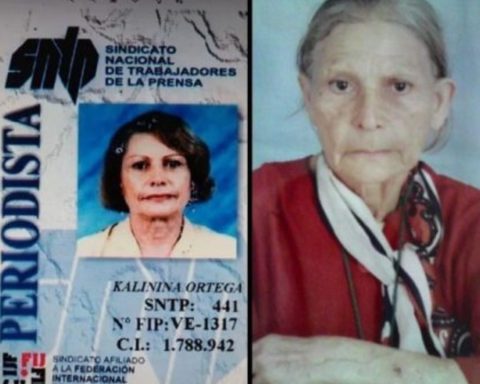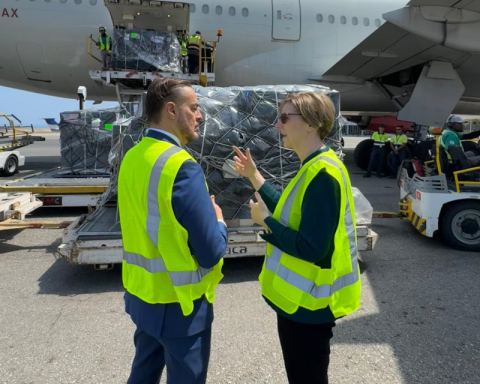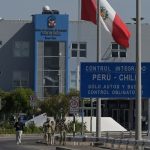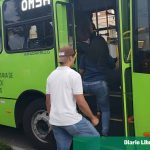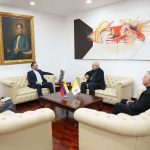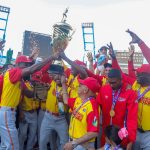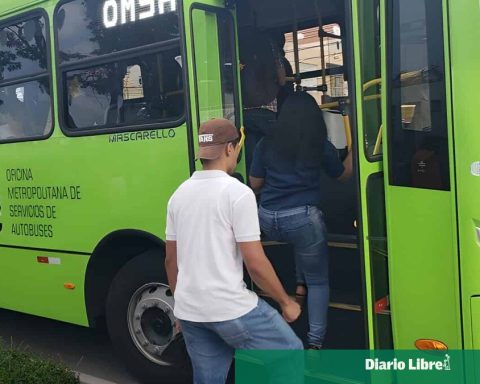Since his election as President of the Bolivarian Republic of Venezuela, Nicolás Maduro has faced tough battles at the national and international level, from which he has emerged victorious together with the people who gave him their vote in the midst of pain due to the physical departure of Commander Hugo Chavez.
On April 14, 2013, Venezuelans elected Maduro, the first Chavista president, to lead the country and continue the legacy of the Eternal Commander at the head of the Bolivarian Revolution.
Unilateral coercive measures; economic, commercial and financial blockade; kidnapping of national assets abroad; assassination attempts, mercenary invasion and coups d’état, are some of the actions undertaken by the United States government, with the support of the Venezuelan opposition, to impose its so-called “regime change”, but they found a people conscious and determined to be free.
Bolivarian Peace Diplomacy
Faced with the increase in aggression by the North American country and its allies in Europe, Latin America and the Caribbean, the Bolivarian Government continued to defend the sovereignty of the people through Bolivarian Peace Diplomacy.
During these 10 years of management, Venezuela has participated in various world platforms, such as the General Assembly and the Security Council of the United Nations Organization (UN), to denounce the threats of war and the imposition of unilateral coercive measures, ratifying its support for inclusive multilateralism and respect for the self-determination of peoples.
Likewise, the Government of President Maduro has strengthened strategic alliances with Russia, China, Türkiye, Iran, India and African countries, with the use of local currencies.
On the other hand, he withdrew from the Organization of American States (OAS), which assumed a policy of direct interference in internal affairs of Venezuela.
In the first year of his government, 2013, the Venezuelan dignitary toured the countries of the Southern Common Market (Mercosur), with the intention of strengthening integration with the bloc in the energy, financial, economic, productive, social, cultural and political.
As part of the battle against the imperial provocation of civil war and intervention, Venezuela raised its voice at the II Summit of the Community of Latin American and Caribbean States (CELAC), held in Havana, Cuba, in 2014, when it proclaimed the region as a Zone of Peace.
Diplomacy and strategic cooperation
The unilateral coercive measures and the financial blockade of the United States have been the crucial battles of the Maduro Presidency since he assumed his first term in 2013, criminal actions that have caused losses of billions of dollars in the production of goods and services, according to a report from the Economic Debates Unit of the Latin American Strategic Center for Geopolitics (Celag).
To face this situation, the president has expanded the ties of cooperation and commercial exchange with allied countries and created the Petro cryptocurrency, which serves as a digital currency in the national and international market for the purchase and sale of products and services. It is supported by natural reserves such as oil, diamond, iron and gold. Gold and petro savings plans were also created to protect the income of Venezuelans.
In 2015, when the then President of the United States, Barack Obama, issued a decree that qualifies Venezuela as an “unusual and extraordinary threat to the national security and foreign policy” of his country; The Venezuelan head of state undertook an international geopolitical tour in defense of oil prices, the nation’s main source of income, whose industry was the object of the crudest imperial aggression.
In September 2016, during the XVII Summit of the Non-Aligned Movement (NAM), held at the ‘Hugo Chávez’ Convention Center on Margarita Island, numerous heads of State and Government and representatives of 120 countries expressed their solidarity with Venezuela.
Protection to the people
Within the framework of the 73rd UN General Assembly, in New York, in 2018, the president denounced the imperialist intervention that weighs on Venezuela, evoking the courage and vehemence of Commander Chávez in each of his participations in the multilateral entity . In 2020, the Bolivarian Government accused the US before the International Criminal Court (ICC) for the imposition of unilateral and illegal coercive measures against the people, since 2014.
Regarding the VI Summit of the Community of Latin American and Caribbean States (CELAC), held in Mexico in 2021, ways of regional convergence were discussed and agreed upon, in a context of questioning the OAS and shared needs regarding the health crises and economy generated by Covid-19.
After having successfully faced the pandemic in Venezuela and serving as an example to the world in measures to protect the health of the people despite the economic blockade, in 2022 the President made a productive work tour of Eurasian and northern countries. from Africa (Türkiye, Algeria, Iran, Kuwait, Qatar and Azerbaijan).
Likewise, when he has already consolidated his leadership in the international arena and the recognition of the legitimacy of the Bolivarian Government by countries allied to the US, the first Chavista president brought the voice of the peoples of the south to the XXVII United Nations Conference on Climate Change (COP_27), which took place in Egypt in 2022.
Starting 2023, with the words “Let’s unite our voice for sovereignty and independence!”, the president of Venezuela called on the members of CELAC to demand the cessation of interventionism against free countries of the continent, during the VII Summit of Women Leaders and Heads of State and Government of the regional entity.
The defense of Venezuela is increasingly solid and heard in the world. President Maduro, with a firm voice, enforces the country’s sovereignty, in addition to consolidating the twinning with free peoples, based on mutual respect and self-determination. 10 years in defense of the Homeland!
